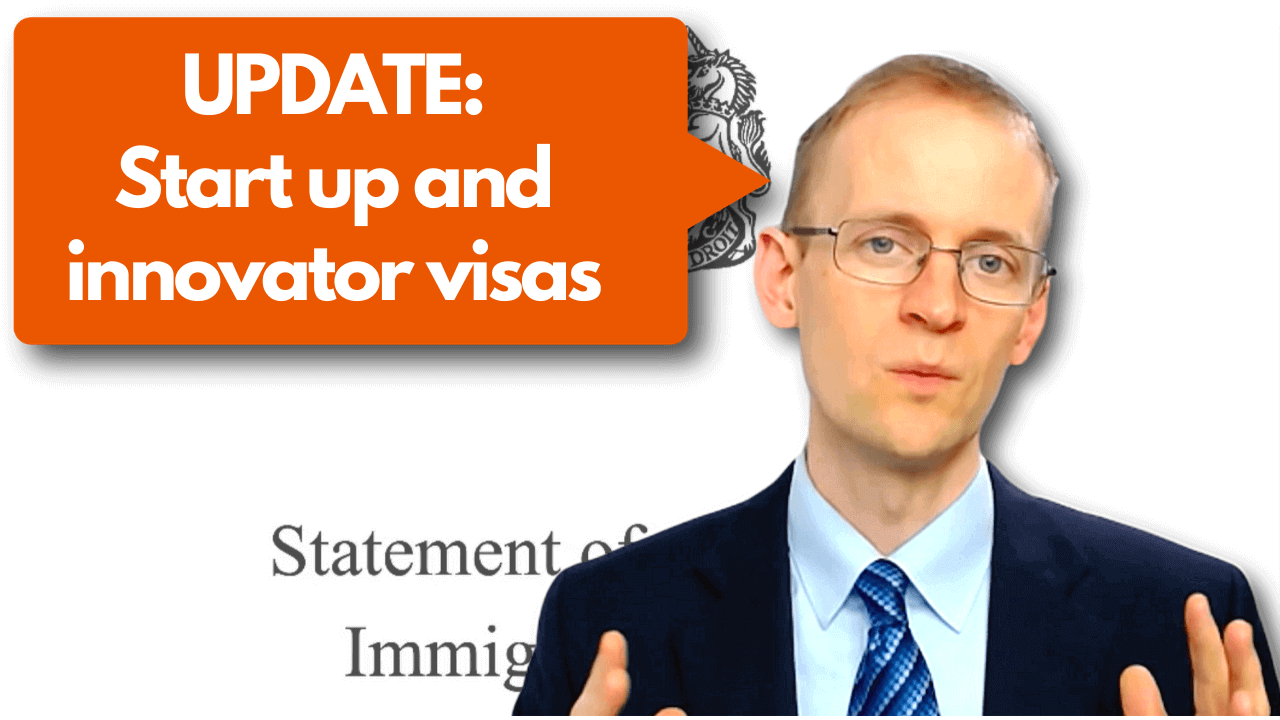
In this video, I explain the changes from the new Statement of Changes to the Immigration Rules (as of 4 June 2020), focussing on the changes to the start up and innovator visa rules (Appendix W).

In this video, I explain the changes from the new Statement of Changes to the Immigration Rules (as of 4 June 2020), focussing on the changes to the start up and innovator visa rules (Appendix W).